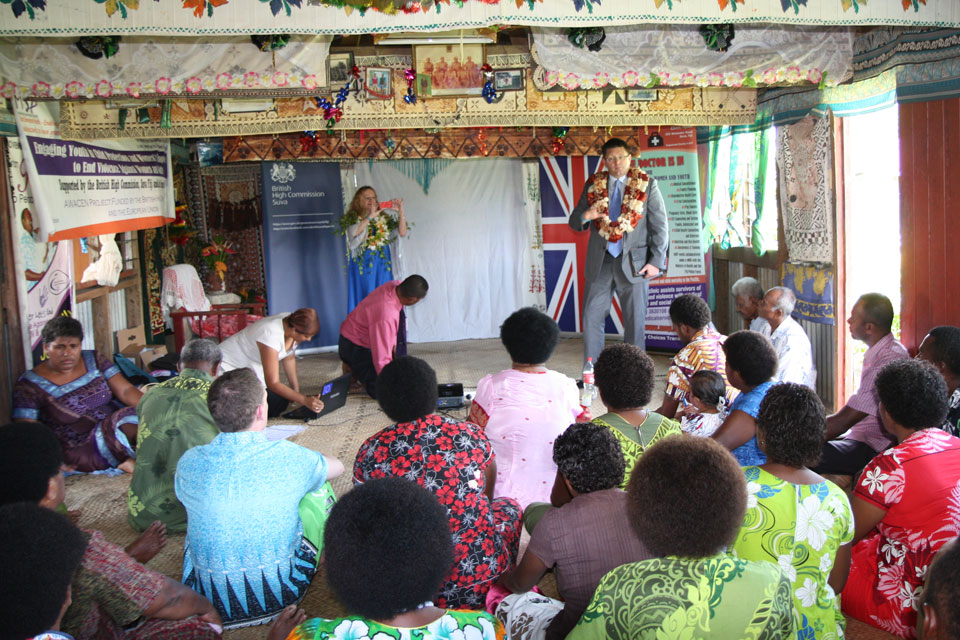Speech at workshop opening on empowering rural youth in child protection and women's rights
Youths in the district of Solaira Tikina in the Naitasiri Province are participating in a 2-day workshop funded by the British High Commission and facilitated by Medical Services Pacific.

A very good morning to you all. I am delighted to be making my first trip to Naitasiri for the opening of this workshop, which has been organised by Medical Services Pacific with funding from the British High Commission.
Today’s workshop – the first of several here in Naitasiri – marks the beginning of the second phase of the All Women and Children Empowered Now project, which aims to address the very serious problem of gender violence – through improved access to information and clinical reproductive health services.
I cannot overstate the importance of this initiative, which the British High Commission has supported since January 2013 with funding worth over FJD 150,000.
Violence against women and girls is a terrible reality that affects the lives of millions worldwide. The UN estimates that as many as 7 out of 10 women will experience violence in their lifetimes. These statistics are shocking and they are unacceptable.
Tackling violence against women and promoting gender equality, both at home and internationally, is a priority for the UK Government and an issue that our Foreign Minister, William Hague, feels passionately about.
Our actions are founded on firmly held principles. We believe that where women live free of violence, have equal access to education, healthcare, political and economic opportunities, societies are healthier, more prosperous and more peaceful. This is our goal.
For over 30 years the UK has been a signatory to the Convention on the Elimination of all forms of Discrimination Against Women (CEDAW). As a signatory we have a moral and a legal obligation to end discrimination against women.
At home the UK Government is focused on preventing gender violence from happening in the first place. Changing attitudes is at the heart of our approach. But we are also supporting the police and courts, to ensure they have the necessary resources to bring offenders to justice and to provide assistance for survivors.
We are also taking action beyond our borders. The UK is a principal supporter of UN Women and a champion of United Nations Security Council Resolution 1325 – the founding resolution for the ‘Women Peace and Security’ agenda, designed to protect and empower women in conflict situations. We were one of the first countries to devise a National Action Plan on UNSCR 1325, which serves to integrate the aims of the resolution into our diplomatic, defence and development work.
And since 2012 we have been pursuing at the highest levels a global campaign to end sexual violence in conflict, including through the UN Security Council and our Chairmanship of the G8.
We have achieved widespread support for a Declaration of Commitment to End Sexual Violence in Conflict, which has been endorsed by over two thirds of the UN membership, including Fiji. And this year we will host a global summit in London where we hope to turn commitments into action.
But of course, it is critically important that our ambitions on the international stage are supported by targeted actions at the local level. Today’s workshop is a fine example of this.
Issues affecting the rights of women and children are often hidden from view. We want to change this. These are subjects that should be talked about and must be addressed. Over the next two days I hope you will engage openly and honestly.
I have been personally inspired by the excellent and vital work carried out in Fiji by Medical Services Pacific. I wish this initiative the success it so clearly deserves.
Thank you.